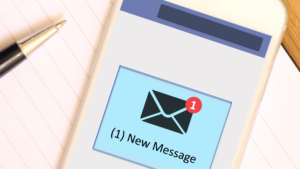The Role Of Medical Scheduling Systems In Reducing No-Shows And Cancellations
Missed appointments are a significant challenge for clinics and healthcare providers, causing operational disruptions and financial losses. When patients fail to show up for scheduled visits, it affects the clinic’s workflow and impacts other patients who may need those time slots. Studies indicate that implementing efficient clinic scheduling systems can significantly reduce the incidence of no-shows.
In this article, we will explore how these advanced scheduling solutions can effectively address the issue of missed appointments. By examining the features and benefits of an appointment, we aim to demonstrate how they can enhance patient engagement, optimize clinic operations, and ultimately improve overall patient care.
Key Takeaways
- Scheduling efficiency cut no-shows by up to 30% through automated reminders and online self-scheduling. This increases patient attendance and reduces cancellations.
- Real-time scheduling updates and integration with patient communication tools improve clinic operations. They keep both staff and patients informed, enhancing trust and satisfaction.
- These systems boost staff productivity by automating administrative tasks like appointment management. This allows healthcare workers to focus more on patient care without getting overwhelmed by scheduling duties.
- By providing seamless coordination within clinics, efficient scheduling lead to better resource allocation and operational efficiency.
How Medical Scheduling Systems Work

Automated appointment reminders play a crucial role in medical appointment coordination systems. Clinics and hospitals use these alerts to send texts or emails to patients about upcoming visits, helping them keep track of their appointments and reducing missed visits and cancellations.
By integrating this functionality into clinic and dental appointment management systems, healthcare providers ensure patients receive timely notifications. These reminders not only assist patients but also free up staff time; instead of calling each patient, team members can focus on other tasks, thanks to the automation of the scheduling system.
Furthermore, online self-scheduling is essential for the efficiency of dental and medical appointment systems. This feature allows patients to book appointments through a digital platform anytime, making finding suitable slots convenient. Clinics implementing this technology reduce phone calls, freeing staff to focus on other tasks.
Patients appreciate the control and flexibility of online scheduling, which meets the modern demand for immediacy and convenience. A doctor appointment scheduling system with this option empowers patients and decreases no-shows and cancellations, as individuals are more likely to attend appointments they have arranged themselves.
Key Features That Reduce No-Shows and Cancellations
Medical scheduling systems provide real-time updates that enable clinics to manage appointments efficiently. These systems offer instant visibility into schedule changes, ensuring staff and patients have up-to-date information on availability. This functionality reduces the risk of double bookings and scheduling conflicts, streamlining patient management in dental and medical practices. Additionally, this enhances communication by promptly notifying patients of any changes, fostering transparency and trust in clinic operations.
Integration with patient communication tools is vital for scheduling in healthcare. These systems facilitate seamless interaction between healthcare providers and patients by incorporating SMS, email, and secure messaging platforms. This integration streamlines the appointment process with automated reminders, efficient rescheduling options, and convenient online access for patients to manage their appointments.
Patient communication tools are essential for reducing no-shows and cancellations by enhancing engagement and informing patients about their scheduled visits. Studies indicate these tools significantly decrease missed appointments, improving clinic efficiency and patient satisfaction. With real-time updates and personalized reminders, medical facilities that integrate these tools experience fewer last-minute cancellations and minimize gaps in their appointment schedules.
Benefits of Medical Scheduling Systems

Medical scheduling systems are essential for improving patient attendance rates. Features like automated appointment reminders and online self-scheduling can reduce no-shows by up to 30%. Real-time scheduling updates and integration with patient communication tools further streamline the process, significantly decreasing cancellations and missed appointments.
Adopting dental appointment management systems has resulted in a 50% increase in patient attendance rates, highlighting the tangible benefits of these innovative solutions. Additionally, the seamless integration of clinic scheduling systems enhances staff productivity and ensures efficient use of time and resources within healthcare settings.
To enhance staff productivity, clinic scheduling systems streamline appointment management through automated processes and real-time updates, freeing up valuable time for healthcare professionals. Integrating patient communication tools like SMS reminders and online self-scheduling allows staff to concentrate on providing excellent patient care instead of being burdened by administrative tasks.
Beyond alleviating the burden of manual scheduling and reminders, dental appointment scheduling systems provide advanced analytics that help staff identify trends and allocate resources efficiently. This data-driven approach offers actionable insights to enhance operational efficiency. It enables staff to perform at their best while delivering a personalized experience for every patient interaction without compromising quality or detail.
Conclusion
Medical scheduling systems are crucial for reducing no-shows and cancellations through automated reminders and online self-scheduling. These features enable real-time updates and integration with patient communication tools, boosting staff productivity. By enhancing patient attendance rates and improving operational efficiency, these systems are invaluable in the healthcare industry, ensuring a seamless experience for both patients and providers.
FAQs
Can I outsource my new scheduling system?
You can outsource your new scheduling system to a third-party provider or contractor, allowing you to focus on other aspects of your business while they handle the scheduling tasks.
Can I integrate existing Electronic Health Records with a new scheduling system?
Yes, you can integrate existing Electronic Health Records with a new scheduling system, provided both systems support compatible integration methods.
How can scheduling systems help allocate healthcare resources?
Scheduling systems help allocate healthcare resources by optimizing appointment times, reducing wait times, and ensuring that staff and facilities are efficiently utilized based on patient needs and availability.
References
Ghoneim A, Ebnahmady A, D’Souza V, et al. The impact of dental care programs on healthcare system and societal outcomes: a scoping review. BMC Health Serv Res. 2022;22(1):1574. Published 2022 Dec 23. doi:10.1186/s12913-022-08951-x https://pmc.ncbi.nlm.nih.gov/articles/PMC9780625/
Maleki Varnosfaderani S, Forouzanfar M. The Role of AI in Hospitals and Clinics: Transforming Healthcare in the 21st Century. Bioengineering (Basel). 2024;11(4):337. Published 2024 Mar 29. doi:10.3390/bioengineering11040337 https://pmc.ncbi.nlm.nih.gov/articles/PMC11047988/
Woodcock E, Sen A, Weiner J. Automated patient self-scheduling: case study. J Am Med Inform Assoc. 2022;29(9):1637-1641. doi:10.1093/jamia/ocac087 https://pmc.ncbi.nlm.nih.gov/articles/PMC9382371/

